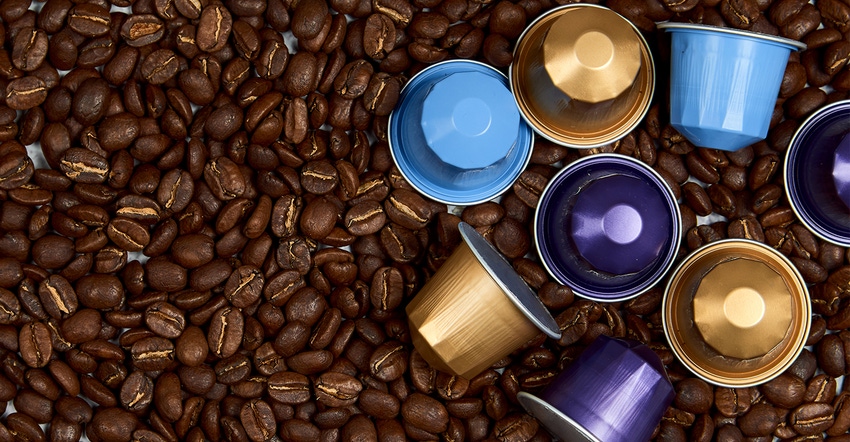Different materials and recycling schemes help consumers seeking sustainably greener options for coffee capsules.
March 10, 2021

Java, joe, mud, decaf, brew, or whatever you want to call it, coffee is universally popular. In fact, 64% of American adults consume coffee every day totaling about 400 million cups daily.
And with fast-paced, on-the-go-lifestyles, single-serve coffee capsules have become the go-to packaging format. A study released just last month pegs the global coffee capsule market growing from $ 8,327 million in 2019 to reach $14,062 million by 2027, growing at a CAGR of 7.0%.
According to the report, “Coffee capsule refers to coffee that’s vacuum-packed in a plastic or aluminum package instead of a paper filter [Ed note: Those are pods, which I didn’t know until researching this report]. The benefit is that the vacuum packing ensures the hygiene and prevents external agents, such as oxygen, humidity, and heat, from entering. Capsules are simple to use and keep the coffee stays fresher for longer. They are usually designed to be used with a single brand or system and are not interchangeable with other systems.”
The growing capsule market has also expanded in materials used, including plastic, aluminum, and now, bamboo.
We’ve assembled a number of recent Tweets that message capsules’ sustainability in various materials, so grab a cuppa and relax.
Any market with its own summit has something going for it.
They are available in aluminum…
And they are available in compostable/biodegradable forms…
And for the truly eco-minded, there are reusable capsules.
One of the newest developments: capsules made of bamboo.
In fact, there’s a kind of capsule war between material options.
Capsules can be recycled through multi-brand recycling programs like this new launch in the UK.
Lastly and failing all other options, there is TerraCycle, the upcycling company that makes the unrecyclable recyclable.
You May Also Like


